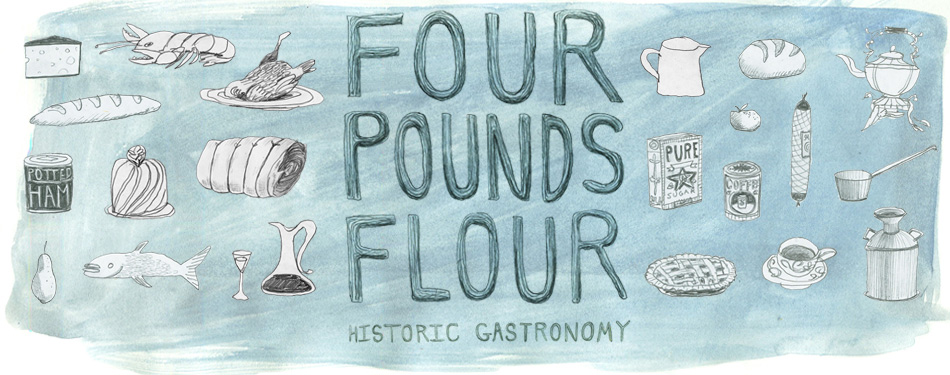I’ve been invited to teach a three-part course at the Brooklyn Brainery, an amazing non-profit that offers classes for cheap. They’ve had educational sessions on everything from beekeeping to kimchi making to whiskey tasting to knife skills.
So I’d like to put the question to you: If I were to teach a course based on the contents of this blog, what would you be curious to learn more about?

Interpreting/converting/translating old recipes. What is a “cents worth” or a “walnut worth” of an ingredient? How do you find and prepare ingredients that a recipe calls for that we don’t have in our modern day pantry; ie. what is spry, where would I find it, and what do I do with it once I have it?
How about a course outlining a suite of recipes for old-timey staples, with cooking tips, shopping advice and the background of where the traditions came from? The sorts of things (breads, soups, desserts, etc.) that every cook or housewife from whatever time period would have known, and that would be practical to make nowadays. In short, but perhaps missing the point, how can I learn to cook like, say, the stubby, red-haired firebrand who runs the kitchen in Masterpiece Theater’s “Downton Abbey”?
For some reason, I always dig it a lot when you talk about what kinds of flavors were popular in what era. Sometimes you even manage to dig up why, say, coriander was popular at some point. Maybe like the history of America in 30 flavors or something?
I think you three just gave me the outline for all three classes. Awesome!